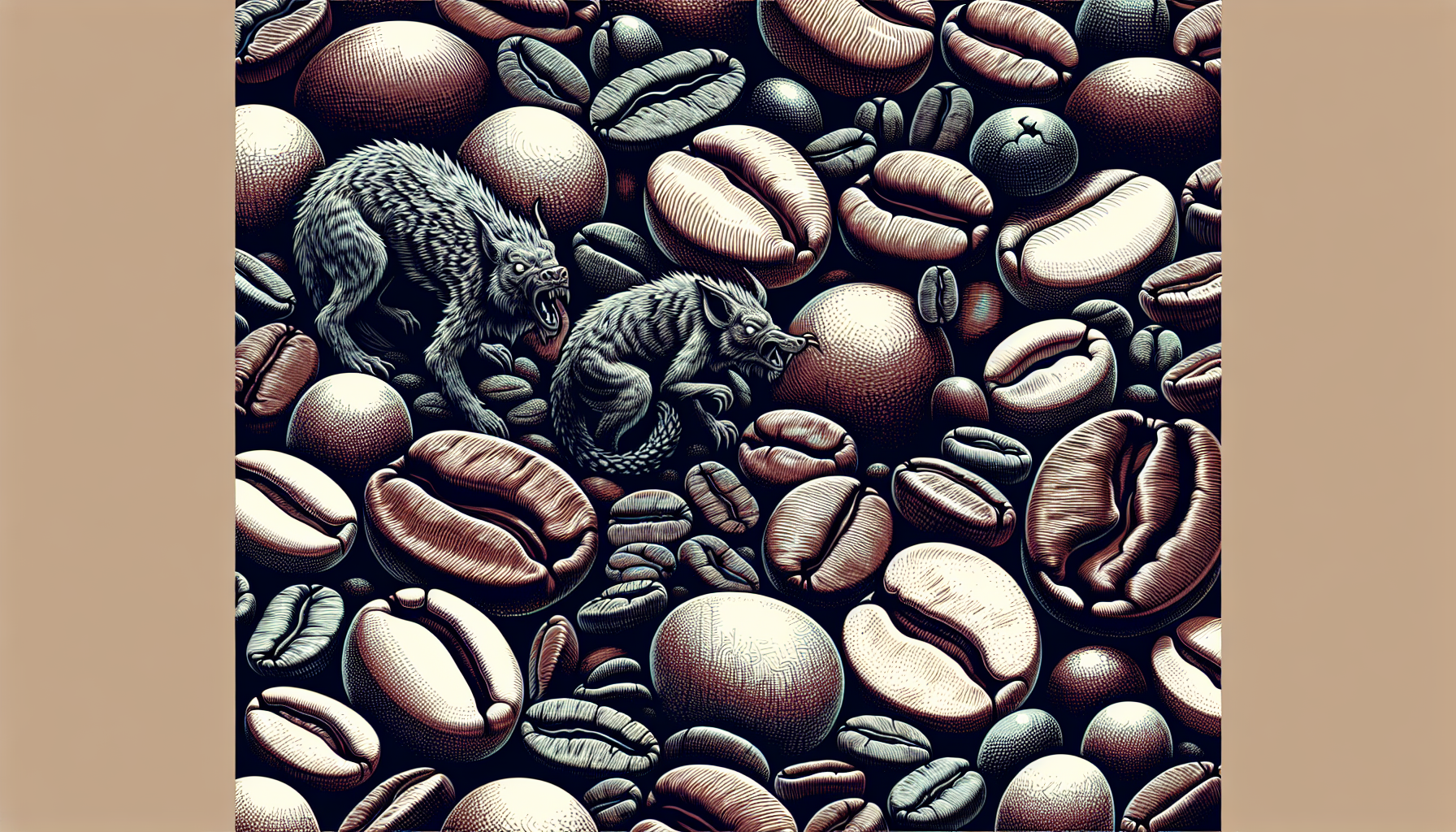Is Coffee Allowed on a Carnivore Diet? The Ultimate Guideline

If you’re strict about your carnivore diet, you might ponder, ‘is coffee allowed on a carnivore diet?’ This dietary regimen is clear on animal products but coffee resides in a gray area. In this article, we’ll distill whether coffee can be reconciled with carnivore principles, and provide you with the knowledge to make an informed decision without compromising your health goals or dietary adherence.
Key Takeaways
- Coffee, though not a staple of the carnivore diet, can be included depending on individual preference, health goals, and the strictness of diet adherence.
- High-quality, organic coffee beans from high altitudes are recommended to minimize exposure to toxins like mycotoxins and pesticides, and coffee should ideally be consumed black to align with the diet’s low-carb principles.
- Before incorporating coffee into a carnivore diet, it’s important to monitor your body’s response and consider potential side effects or nutrient absorption issues, and adjust intake accordingly.
The Carnivore Diet and Coffee: A Controversial Combination?

With the carnivore diet’s emphasis on eliminating plant foods, the question arises, “Does coffee, a beverage derived from plant-based beans, have a place in this diet?”. This query has sparked quite a debate among carnivore diet enthusiasts. Some argue for the exclusion of coffee, firmly sticking to the diet’s guidelines of animal-only products. Others, however, maintain that moderate coffee consumption can be part of a balanced carnivore lifestyle without negating the diet’s benefits.
While coffee is not a typical component of the carnivore diet, some followers choose to incorporate it, considering factors such as moderation and potential health impacts. The question of coffee on the carnivore diet isn’t straightforward. It resides in a gray area, influenced by personal health objectives, individual experiences, and a comprehensive knowledge of both coffee and the carnivore diet.
The Basics of the Carnivore Diet
The carnivore diet is simple in its premise. It’s a diet centered around animal products, including meat, eggs, and sometimes dairy, like cheese, with plant-based foods entirely eliminated from the menu. Supporters of this diet claim that it could lead to benefits such as weight loss, improved mood, and higher energy levels. Many people have reported experiencing these positive effects. In fact, they believe that consuming only animal foods is the way to optimal health and performance.
However, it’s not all sunshine and roses. With the diet’s exclusion of plant foods, including other plant foods, there is a potential risk of deficiencies in certain vitamins and minerals. Moreover, there’s the concern of elevated cardiovascular risk factors, given the high intake of animal fats. Grasping these fundamentals of the carnivore diet is pivotal in assessing the suitability of coffee - a beverage derived from a plant.
Coffee's Nutritional Profile and Health Effects
Drinking coffee, loved by many for its stimulating effects and rich flavor, is not just a tasty beverage. It’s a complex concoction that offers a range of potential health benefits. Moderate coffee drinking can:
- Improve cognitive function
- Enhance athletic performance
- Reduce the risk of certain diseases such as Parkinson’s, type 2 diabetes, and some types of cancer
These benefits are largely attributed to coffee’s antioxidant properties, which combat oxidative stress in the body.
In addition to these benefits, coffee contains trace amounts of essential minerals such as potassium and magnesium, contributing to its nutritional profile. But just like any good thing, too much coffee can have potential drawbacks. Too much coffee is known to exacerbate certain health conditions and might hinder calcium absorption, which is vital in a carnivore diet that predominantly includes animal products.
The Debate: Is Coffee Compatible with the Carnivore Diet?
The debate about coffee’s place in the carnivore diet is an intriguing one, revolving around its alignment with the diet’s animal-based food principles and individual dietary philosophies. A myriad of individual experiences with coffee, some with no adverse effects, and others noting potential drawbacks, contribute to differing opinions on its compatibility with the carnivore diet.
Coffee advocates believe that coffee has various benefits, including being low in carbs and containing zero calories. They also claim that it has supportive effects on metabolism, mood, brain function, mental focus, memory, and liver health. Black coffee, being zero calories and carbohydrate-free, is generally accepted by those seeking to maintain strict adherence to the carnivore diet’s low-carb nature. However, some people may notice digestive issues or increased anxiety with coffee consumption, indicating a need for personalized intake levels.
In the end, whether to include coffee in the carnivore diet depends on factors like an individual’s current health status, their particular objectives, and how strictly they adhere to the dietary rules.
How to Safely Incorporate Coffee into Your Carnivore Diet

We’ve concluded that coffee can fit into the carnivore diet, depending on personal preferences and experiences. But, how can one safely integrate coffee into this diet? The answer lies in selecting high-quality coffee beans, preparing them correctly, and tuning into your body’s response to coffee consumption.
Selecting premium, organic coffee beans grown in high altitudes is a good starting point, as these beans are less likely to contain mycotoxins and pesticides. Experimenting with different brewing methods and keeping an eye on how your body reacts to coffee can help tailor your coffee consumption to your individual needs and health goals.
Selecting High-Quality Coffee Beans
Quality matters, especially when it comes to coffee beans. Organic coffee beans sourced from high-altitude regions are less likely to be contaminated with toxins, providing a safer option for coffee drinkers. These toxins, such as Ochratoxin A, a mycotoxin found in coffee, can damage the liver and even have carcinogenic potential.
Chronic exposure to pesticides, possibly found on coffee beans, has been associated with health concerns including cancer and hormonal disruptions. This highlights the importance of considering potential risks from pesticide residues in food. Therefore, by selecting high-quality coffee beans, such as those that are organic and from high-altitude areas, individuals can minimize exposure to health risks like mycotoxins and pesticides.
Coffee Preparation and Consumption
Once you’ve sourced your high-quality coffee beans, the next step is preparation and consumption. In line with the carnivore diet principles, coffee should be consumed black, without sweeteners or additives. This maintains the diet’s low-carb, high-fat focus and avoids potential disruption to ketosis, a metabolic state often targeted by carnivore dieters for its potential to aid in weight management.
However, going from a sweet, creamy coffee to black coffee might be a jolt for your tastebuds. It’s a transition that may take some getting used to. A gradual approach to reducing coffee consumption or making changes to your coffee habits is recommended to manage potential side effects associated with caffeine withdrawal.
Monitoring Your Body's Response
The inclusion of coffee in your carnivore diet doesn’t follow a universal approach. It’s vital to track your body’s responses to coffee, as its impact can vary among individuals. For instance, coffee contains natural toxins like lectins and phytates, which can lead to digestive complications and inflammation for some individuals.
Regular coffee drinkers may also experience withdrawal symptoms due to excessive coffee intake, such as:
- headaches
- fatigue
- irritability
- mood changes
When they stop consuming caffeine, some individuals may experience withdrawal symptoms due to excessive caffeine consumption. Therefore, moderation of coffee intake is important and should be attuned to personal tolerance levels and unique responses to caffeine to align with wellness goals.
Coffee Alternatives for Carnivore Dieters
But what if, after careful consideration, you’ve decided that coffee doesn’t quite fit into your carnivore lifestyle? No worries! There are alternatives that align with the carnivore diet’s principles. These include nutrient-rich options like bone broth, herbal teas such as peppermint or chamomile, and even animal-based creamers.
Each of these alternatives offers unique benefits, and, similar to coffee, the choice depends on your personal preference, health objectives, and how your body responds. Let’s delve into these alternatives and see how they can serve as effective replacements for your morning coffee.
Bone Broth

Bone broth, a hearty, nutrient-dense liquid made from simmering animal bones and connective tissues, is a recommended alternative to coffee for carnivore dieters. Revered for its healing properties across various cultures, bone broth offers benefits crucial for a carnivore diet, including:
- improving joint function
- boosting skin health
- aiding digestion
- enhancing nutrient absorption
You can enjoy bone broth in the following ways:
- Warm in a mug and enhance it with nutritious fats like ghee or butter to create a satisfying and nutrient-rich beverage
- Use it as a base for soups and stews
- Use it as a cooking liquid for grains or vegetables
- Drink it as a post-workout recovery drink
Not only does bone broth align with the carnivore diet philosophy, but it also provides a comforting, savory alternative to your morning cup of coffee.
Herbal Teas

If you’re looking for caffeine-free hot beverage alternatives, herbal teas might be your best bet. Peppermint tea and chamomile tea are herbal teas appropriate for individuals on the carnivore diet.
Not only do these teas offer a flavorful alternative to coffee, but they also possess health benefits. For instance, peppermint and chamomile teas offer digestive benefits and are associated with calming effects, adding to their suitability as coffee alternatives for carnivore dieters.
Animal-Based Creamers

If you’re not ready to let go of the creamy texture of your coffee, don’t despair! The carnivore diet offers animal-based alternatives that can serve as suitable creamer options. For instance, animal-based fats such as ghee, tallow, or heavy cream can be added to your beverage to mimic the creaminess of traditional coffee creamers.
In fact, you can make a homemade carnivore-friendly coffee creamer by blending unsalted butter or ghee into your hot coffee to create a creamy texture. Adding these healthy fats to coffee aligns with carnivore diet principles, offering an alternative to sugary or artificial sweeteners.
Potential Drawbacks of Coffee Consumption on a Carnivore Diet
While coffee can potentially be included in a carnivore diet, it’s important to be aware of the potential downsides. Comprehending these risks can assist you in making knowledgeable decisions regarding your coffee intake.
One concern is that coffee may trigger inflammatory responses and gastrointestinal discomfort, which could present additional issues in a diet primarily comprised of animal products. Excessive coffee consumption can also exacerbate dehydration, a condition that is already a concern in a carnivore diet due to its natural diuretic effect.
Caffeine-Related Side Effects
Caffeine, the main active ingredient in coffee, has a double-edged sword effect. While it can increase alertness and delay melatonin production, it can also disrupt natural sleep patterns, affecting overall health and cognitive function.
Consuming too much caffeine has been associated with causing stress and symptoms related to anxiety, as well as potentially impacting adrenal function and metabolic balance. It’s important to be mindful of our caffeine intake for overall well-being. Moreover, coffee’s diuretic effect can lead to dehydration and impact electrolyte balance, potentially exacerbating medical issues like urinary urgency or incontinence. Therefore, reducing caffeine intake can improve symptoms of anxiety, heartburn, and dizziness; observing personal reactions and avoiding excessive coffee consumption are recommended to prevent negative side effects.
Interference with Nutrient Absorption
Another potential drawback of coffee consumption on a carnivore diet involves nutrient absorption. Coffee contains antinutrients which can potentially reduce the bioavailability of nutrients from animal products.
While the carnivore diet eliminates plant-based foods because they contain antinutrients and other compounds that can interfere with gut health and nutrient absorption, coffee, often consumed on a carnivore diet, contains similar substances. To mitigate the impact of antinutrients on the absorption of essential nutrients while following a carnivore diet, it is advised to choose organic coffee beans that have been subjected to minimal processing.
Personalizing Your Approach to Coffee on a Carnivore Diet
Including coffee in a carnivore diet is a personal choice that should be based on your health objectives, dietary needs, and individual experiences. While some people may find that coffee enhances their carnivore diet experience, others may discover that it detracts from their health goals.
Monitoring your body’s reactions to coffee, considering your personal health goals, and observing how coffee impacts your energy levels, mental clarity, and stress can provide valuable insights into whether coffee should be a part of your carnivore diet.
Assessing Tolerance and Goals
Considering the possible impacts of coffee on your body and overall well-being, it’s essential to evaluate your tolerance to coffee and align your coffee intake with your health objectives. For instance, if you’re noticing negative effects from coffee, it’s essential to consider reducing or stopping your coffee intake.
Decisions regarding coffee consumption should take into account how they align with your individual health objectives. It’s essential to consider not only the potential benefits but also the potential drawbacks, making an informed decision that suits your unique needs and goals.
Moderation and Balance
As with any aspect of diet and nutrition, moderation and balance play a pivotal role when it comes to fitting coffee into your carnivore diet. Maintaining a balance of nutrient-dense animal foods is crucial, and coffee should be consumed in moderation to prevent it from displacing your primary sources of nutrition.
Exploring various coffee brewing methods can also help tailor the flavor and caffeine level to your specific dietary needs. This way, you can enjoy the benefits of coffee while ensuring that it complements, rather than detracts from, your carnivore diet. Some coffee brewing methods to consider are:
- French press
- Pour-over
- Espresso
- Cold brew
By experimenting with different brewing methods, you can find the one that suits your taste preferences and dietary requirements.
Summary
In conclusion, the relationship between coffee and the carnivore diet is neither straightforward nor one-size-fits-all. While coffee is a plant-based beverage, its potential health benefits and the generally accepted consumption of black coffee make it a possible inclusion in the carnivore diet. However, it’s important to consider individual reactions, potential drawbacks, and personal health goals when deciding whether to incorporate coffee. By selecting high-quality coffee beans, preparing it properly, and maintaining a balanced intake, coffee can be a part of your carnivore diet if it aligns with your personal needs and health objectives.
Frequently Asked Questions
What can I drink on the carnivore diet?
On the carnivore diet, stick to drinking water and bone broth, and avoid tea, coffee, and other plant-based drinks.
Can I drink coffee on the carnivore diet?
Yes, you can drink coffee on the carnivore diet, but consider your personal health goals and how coffee affects your body.
What kind of coffee is best for the carnivore diet?
For the carnivore diet, it's best to choose high-quality, organic coffee beans from high-altitude regions to minimize toxin contamination.
Are there any alternatives to coffee for individuals on a carnivore diet?
Yes, you can try bone broth, herbal teas, and animal-based creamers as alternatives to coffee on a carnivore diet. They can serve as satisfying substitutes.
What are the potential drawbacks of consuming coffee on a carnivore diet?
Consuming coffee on a carnivore diet can lead to caffeine-related side effects like sleep disturbances and anxiety, as well as potential interference with nutrient absorption. Be mindful of these drawbacks when including coffee in your diet.
